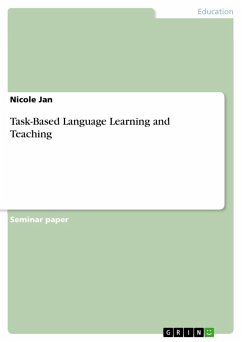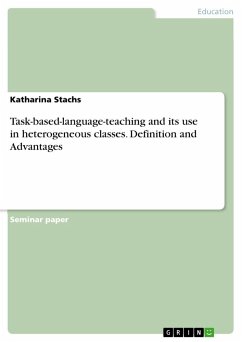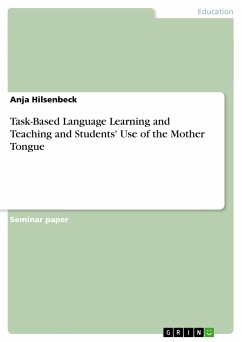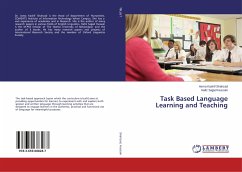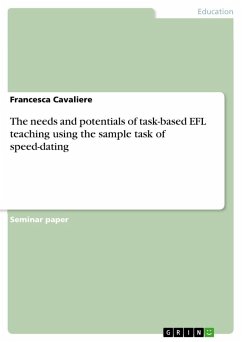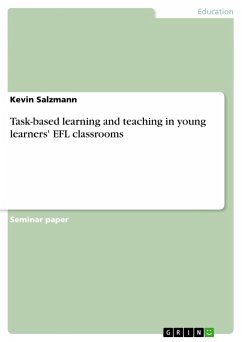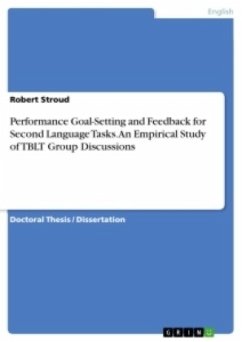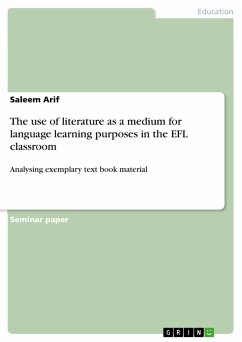Seminar paper from the year 2016 in the subject Didactics - English - Pedagogy, Literature Studies, grade: 1,6, University of Frankfurt (Main) (England and American Studies - Didactics Department), course: Integrating Skills and Task-Based Language Learning, language: English, abstract: In the following term paper, I would like to give a brief overview about task-based learning in general and the way it provides effective language learning with the help of motivational tasks in order to show that in-class language practice does not necessarily have to be an artificial situation. In modern second language teaching the role of task-based learning has become a very important topic. Due to the fact that many exercises in EFL classrooms have no clear connection to real world situations, researchers and modern English teachers try to put emphasis on tasks which help learners to use the target language effectively in different situations outside the classroom.This term paper has its focus on the implementation of task-based learning and teaching in EFL classrooms and the way task-based activities can be designed. Based on the fact that motivation plays an important role in language learning, it is also necessary to concentrate on possibilities to make the English language attractive (also for young learners) and to help them realizing that through task-based learning activities they can learn something which can be transferred to real life situations. Since I did not know a lot about task-based language learning (and teaching), I was looking forward to being engaged in this topic. The most interesting and also surprising aspect that I learned was that there are so many advantages of TBL. First of all, TBL allows students to be free of language control because they use all their language resources rather than just practicing one preselected item. Furthermore, a natural context is developed from the students' experiences with the language that is personalized and relevant to them. Another essential advantage is the more varied exposure to language with TBL since they will be exposed to a whole range of lexical phrases, collocations and patterns as well as language forms. An important aspect of TBL is that the language explored arises from the students' needs. It is no more the decision made by the teacher or the coursebook. Lastly, the most important advantage in my opinion is the strong communicative approach because students spend a lot of time communicating. I am sure that TBL is enjoyable and motivating for students as well as for teachers.
Hinweis: Dieser Artikel kann nur an eine deutsche Lieferadresse ausgeliefert werden.
Hinweis: Dieser Artikel kann nur an eine deutsche Lieferadresse ausgeliefert werden.

